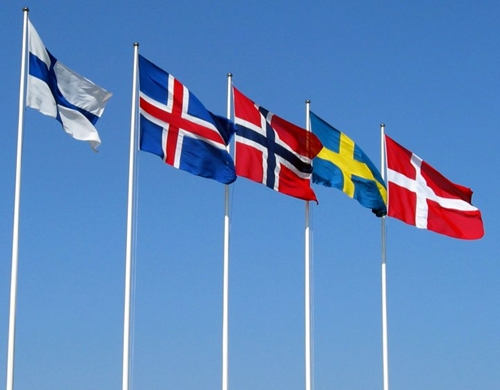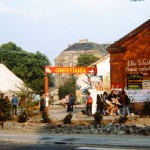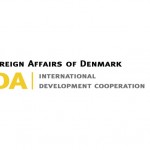The day began with all of us going from The Society of International Affairs Gothenburg, scavenging what remnants of the woken state of mind we could find as the morning sun bathed us with a little bit of extra d-vitamins. The bus trip from Gothenburg to Copenhagen takes roughly about five hours with a few stops along the way. The scenario which plays out before yours eyes changes from thick Scandinavian forest and mountains to a bulging farm country so typical of southern Sweden. A crisp blue sky and the sun as good friend lightened up the hazy eyes and soon jokes were hurled at each other.
And soon Öresund greeted us with wide arms, with the bridge that connects the historically geo-isolated Sweden from the rest of the continent standing tall in the horizon. A mark of human engineering traversing the sea, a monument of our determination to embrace our neighbours rather than to shone them away. A perfect symbol for our first visit to The Nordic Council: an organisation built on the very same ide of what they called ‘neighbourhood politics’. To foster Nordic relations, ideals, culture and values it has successfully established itself as a stable and prominent collaboration and platform to develop mutual projects and ideas.
It much flies under the media radar in the Nordic countries themselves, virtually unknown to the general public. But perhaps that is a consequence of deep collaboration that cause little drama, the oil in the machinery is seldom thought of or appreciated until you run out of it. The Nordic Council is deeply involved in the affairs surrounding the Baltic Sea and has offices in most of the surrounding countries. The historical political and cultural differences between the Nordic and Russia have made it crucial to speak with a unified voice rather than each to their own. The concept of trade and communication has made such good way that many other countries are looking their way and adopting it and developing similar organisations in Asia and Eastern Europe. EU, for example, has little power to do things for itself and often relies on external organisations. In that sense the Nordic Council plays a crucial part in the area around the Baltic Sea. Also it plays a role in the ever more contested Arctic. Iceland and the Faroe Islands naturally doesn’t have the same interest in the Baltic Sea and during our presentation of the council I got the impression that they might play a smaller role than the ‘bigger’ ones.
The future challenges seems to mainly lay in pushing the Baltics and Russia towards more a more open, progressive and economical stable society. Drugs, trafficking, criminal activities and other negative encounters of the more obscure shady character across the pond spread to the Nordic countries and as Kenneth Broman from Finland puts it “Threatens our way of life”. Education, economic progression and exportation of values and organisation is on the agenda and more people should take notice of this very active and integral part of the north. You can read more at www.norden.org.
Text: Daniel Brandt




